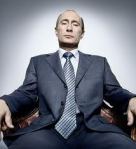I have hesitated in commenting on the vital issue of Ukraine’s leadership dilemmas, as all seems confusion as regime change takes place
[DEVELOPMENTS WILL BE FOLLOWED AS THIS POST IS UPDATED]
Background
A decade ago, in 2004, Viktor Yanukovych, then Prime Minister, was declared the winner of the presidential elections. The results caused a public outcry regarding illegalities. This resulted in the peaceful Orange Revolution, bringing Viktor Yushchenko and Yulia Tymoshenko to power, leaving Viktor Yanukovych in opposition. Yanukovych returned to a position of power in 2006, when he became Prime Minister until snap elections in September 2007 made Yushchenko Prime Minister again who fell out with Yulia Tymoshenko who was imprisoned on corruption charges.
Disputes with Russia over natural gas added to the political tensions far beyond Ukraine. Viktor Yanukovych was again elected President in 2010, although again with charges of electoral illegalities.
Ukraine’s leadership morass
In the space of a few days in late February 2014, bloody events in Kiev have left over a hundred fatalities. These were followed by the flight out by President Yanukovych, release from prison of opposition leader Yulia Tymoshenko, and implicit acceptance by the authorities and police of the success of the demonstrators.
As can be observed from afar
As much as can be observed from afar, there is little of the triumphalism that accompanied the events of the Arab Spring of 2011. Perhaps the extended and bloody outcomes in Egypt and elsewhere provide a tempering of the mood of the articulate demonstrators willing to speak to Western journalists.
Not as simple
Nor is the story being offered as a triumphal return of an imprisoned heroine who would advance the process of escape from oppression. After her release from prison, Yulia Tymoshenko’s first public appearance and appeal to the people [23 February 2014] received a mixed reception by the crowds in Kiev. it was hardly the return of the savior, which tends to be one in which rationality is secondary to uncritical acclaim.
East is east?
Nor is it as simple as ‘East is East and West is West’ although the geo-political story of a convenient division marked by the Dneiper has been discussed.
Dilemmas
I seek some understanding by wondering about dilemmas facing the various leaders and their supporters.
President Putin would have wanted time to bask in the un-bloodied success of the Winter Olympics at Sochi before permitting Ukraine to take the global headlines.
Angela Merkel who would like to signal support for a new relationship with the West on behalf of the EC, without provoking unwanted reactions from President Yanukovych.
Deposed President Yanukovych would be considering what options are open to him to return to power, or maybe avoid criminal charges.
Yulia Tymoshenko, is street smart enough to know there is no easy route to power, and also for dealing with some unanswered questions about her own track record of corruption for which she was imprisoned.
Vitali Klitschko, best known as former world heavyweight boxing champion. Now an opposition party leader active in the Kiev demonstrations in which over a hundred people were killed. Charismatic? At least very media savvy. He has to assess who might be his most valued allies. I can’t help thinking of former world chess champion Gary Kasparov, whose political career in Russia remains unfulfilled.
February 24th 2014
Arrest warrent made for former President Yanukovych
February 26th 2014
February 28th 2014
The southern province of Crimea becomes potential flashpoint for new regime with pro Russian demonstrations
Tuesday March 3rd 2014
Events have moved swiftly. Deposed President calls for Russian help. Russian troops invade Crimea. US, EC, UN seek revolution fearful of escalation into military conflict. Russian finance markets also in turmoil.
Thursday March 5th 2013
War of words between Obama and Putin over Putin’s actions
Monday March 10th
Western Press reports a lack of clear strategy for Crimea coming from Kiev



 Posted by Tudor Rickards
Posted by Tudor Rickards 

 Click for regular updates
Click for regular updates